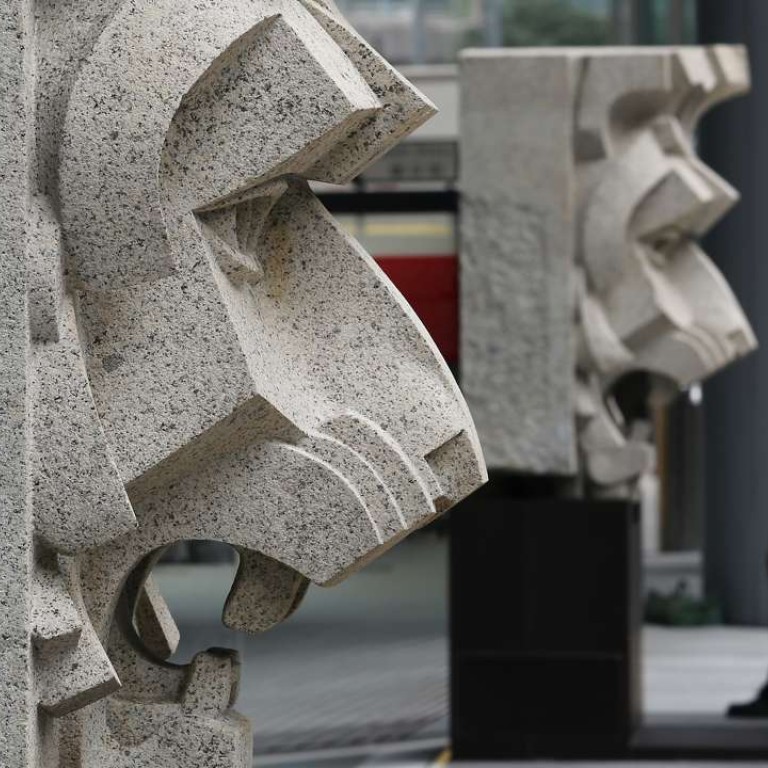
Feng shui a force to be reckoned with in Hong Kong, shaping homes and even cityscapes
Concept of enhancing life through optimising arrangement of objects still key principle in city
At the beginning of every Lunar New Year, Hongkongers will look at ways to improve their homes, and hopefully their prospects for the 12 months ahead – with the help of feng shui.
Pronounced fung shway, and translated as “wind/water”, it is the concept that objects around us can affect our energy (chi), and by optimising the arrangement of those objects, it is possible to enhance your life.
The practice originates from Taoism and is perhaps most commonly applied to home furnishings. But in Hong Kong, it is also a principle used to influence cityscapes. The elements which must be kept in balance include water, wood, fire, metal and earth.
Louis Wong, a feng shui practitioner at Sky Fortune in Causeway Bay, said the positioning of the No 1 star (water) in the middle of the chart means Hong Kong’s economy could be “unstable” this year. “It also affects people’s emotions,” he said. “It is very easy to argue and quarrel. If people want to avoid those unstable elements, they need to enhance the No 9 star (fire) or the No 4 star (wood). These two stars can stabilise the impact and bring good luck.”
For 2017, he suggested the following strategies to achieve balance at home:
● Money: the star is in the east corner, so it is best to put stones there to enhance wealth;
● Happiness: the star is in the southeast, so purple, orange or red furnishings in this part of the home will increase family happiness;
● Reputation: positioned in the northeast corner, this star corresponds with the number four or eight, so it is best to put that number of objects in the northeast, for example, four bamboo sticks;
● Health: the star corresponding to “sickness” is in the south, so put something metal, such as a mechanical clock, as a counterbalance;
● Conflict: the No 6 star, which can signify arguments, is in the west, so it is best to break this up with a firecracker, or offset it with a music box;
● Love: the No 7 star, which can represent women, is in the southwest corner, so flowers in that position of the home will enhance relationships.
Since the Tang dynasty (618 to 907), traditional feng shui has generally been divided into the form and compass schools of thought. The former focuses on practitioners using the “forms” of the land to their best possible advantage, while the compass school takes a more mathematical look at objects, assessing their positioning and the direction they face. Some followers will adopt a mix of the two.
As a territory, Hong Kong’s position between the water and mountains is also thought to create a positive flow of “chi”. The city has also become home to “dragon gates”, square holes in buildings which are believed to allow mythical dragons to fly down from the mountains and reach the water in Victoria Harbour, or in the literal sense, allow for wind to pass through them.
Large companies in Hong Kong, such as HSBC, continue to employ feng shui consultants when designing buildings. The HSBC headquarters in Central, designed by British architect Norman Foster, has a large open area in front of it, which means no other buildings blocks its view of the harbourfront. This signifies good energy. Its iconic lions are also said to guard the building’s wealth.
In contrast, the Bank of China building has been criticised by feng shui experts for its sharp edges, which they believe metaphorically cuts into the fortune of its neighbours.
Feng shui has even influenced the arrangement of whole settlements in the New Territories, according to a paper in the Journal of the Royal Asiatic Society Hong Kong Branch by Jason R. Ali and Ronald D. Hill. Buildings are generally oriented towards a road, while villages are located next to a water supply, or river crossings, the authors explain. This contrasts with the application of feng shui in Western and Middle Eastern cultures, which tend to focus on individual structures rather than a settlement.
Feng shui continues to play a vital role in how Hongkongers view property too, according to Cliff Tse, regional director of valuation advisory services at real estate services firm Jones Lang LaSalle.
While the valuation of properties is based on more scientific factors such as location, view, and unit size, people in the market may hire feng shui masters before making purchases, and it can influence their consideration of a property, he said.
“Some people in the past might say: ‘This is a good feng shui development because it was built on a reservoir’,” Tse said, referring to the belief that a home near a body of water will provide a reservoir of “chi”. “I think feng shui, in terms of ranking, may not be that high [in buyers’ considerations], but for some, it will be a key attribute.”
Developers have taken this into account, and avoid having fourth, 14th, or 24th floors in buildings since the word “four” in Chinese sounds similar to that of “death”. And others might pay more for units on a building’s eighth floor, since the word for “eight” is close to that of “fortune” in Chinese.
Do’s and don’ts
General principles to adopt in your home:
● include red objects as they can help attract “chi”
● fill hallways with interesting objects to slow down “chi”, and arrange them in zigzags
● find ways to reduce clutter
What not to include in your home:
● glass walls, which allow “chi” to leak out rapidly
● glass table tops, which may hinder your life goals
● open beams, because they can “radiate poison arrows” to the space below them
*Source: Feng Shui Demystified by Clear Englebert


